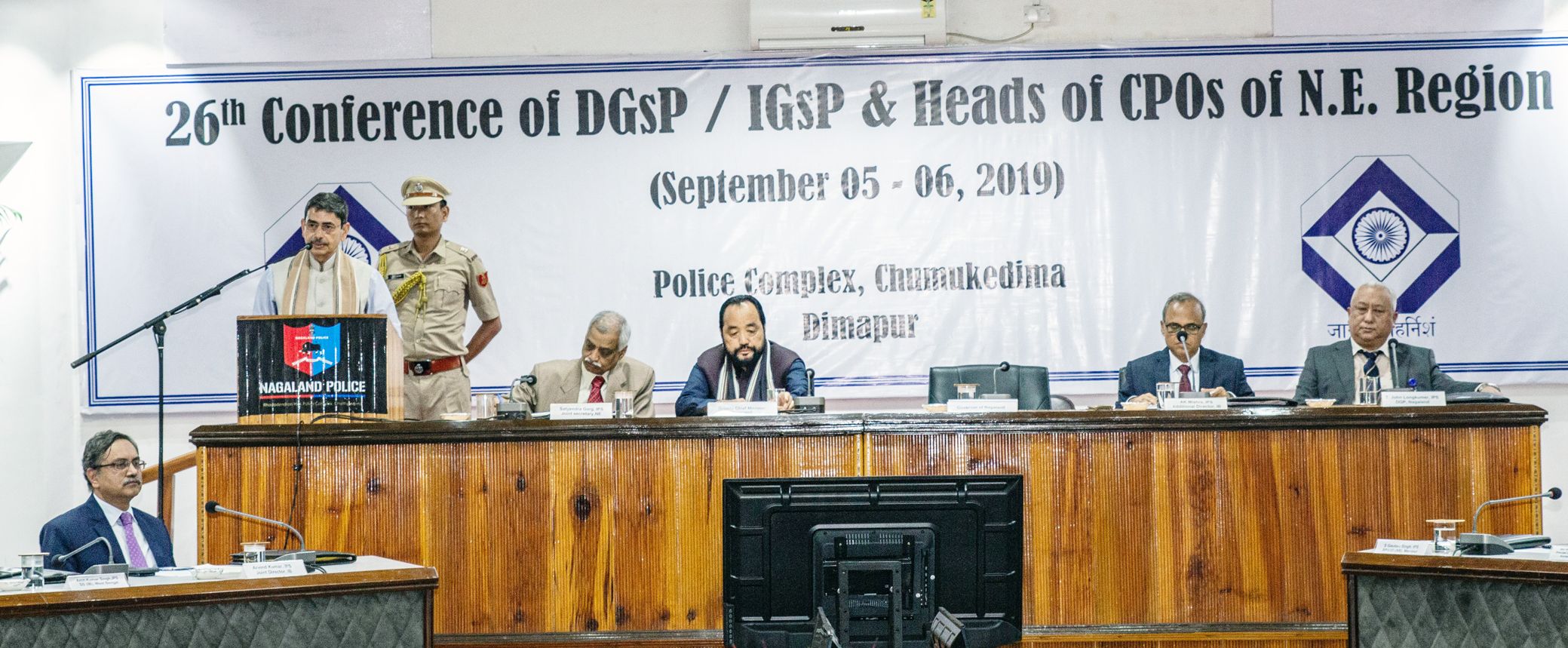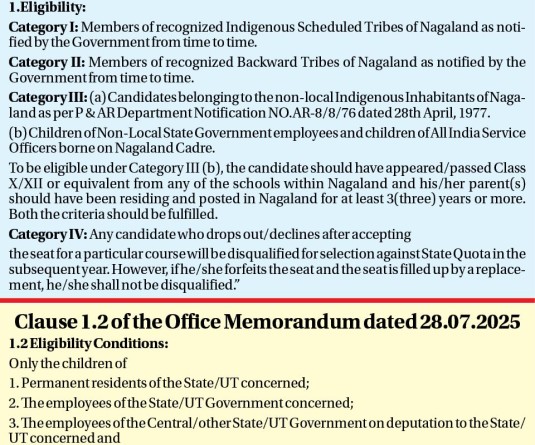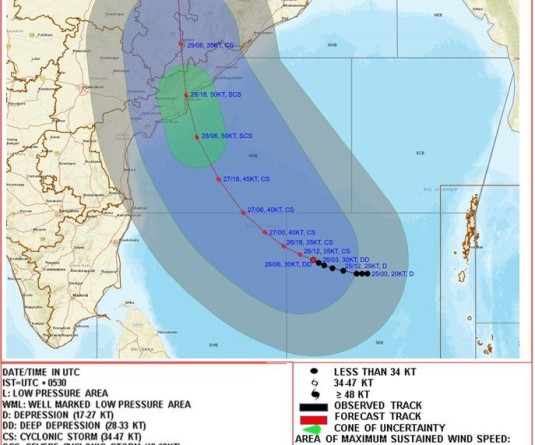Paradigm of security in the north-east is changing: Ravi

Governor of Nagaland, RN Ravi giving the inaugural address at the 26th conference of the NE states’ police chiefs at the NAPTC, Chümoukedima, Dimapur Nagaland on September 5.
Says improving situation calls for transitioning to a more civil policing oriented policy
Morung Express News
Dimapur | September 5
The 26th conference of the police chiefs of the north-eastern states of India took off in Dimapur on September 5. Hosted by the Nagaland Police at the NAPTC, Chümoukedima, the two-day conclave, which will conclude on September 6, also had in attendance IGPs and heads of Central Police forces stationed in the region.
Governor of Nagaland, RN Ravi addressed the inaugural session today. In his address, Ravi called for a paradigm shift in the NE region’s security policy which has been largely defined or modeled along anti-insurgency.
“The paradigm of security in the north-east is changing and we can see the change. Till some years back insurgency was the core theme. Now, things have improved considerably,” he said while adding that the consolidation of the improvement in security has begun already.
Attributing the changing security scenario to a sustained and coordinated effort of the security forces, including the police, on the ground and the policies of the government, he said that the security policy should transition to combating the after-effects of insurgency.
“Our focus has to shift from combating active insurgency, which we have been doing, to combating post-insurgency criminal activities.”
Waning of armed insurgency, he said, gives rise to a period of criminal activities due to easy availability of illicit weapons. Terming it “a natural phenomenon,” he added that there are study models and the NE police chiefs “can as well deliberate how to deal with such a situation.”
He cited illicit arms trade as another pressing problem, while adding that the region’s susceptibility to Islamic fundamentalism and the implications of the finalization of the National Register of Citizens (NRC) in Assam are two other challenges. He held that the latter of the three could result in serious public disorder.
According to him, allaying the apprehension of the neighbouring states with regard to the NRC exercise should be a focus. “(We have) to address it in terms of how to ensure that the ‘illegal foreigners’ do not get into the neighbouring states” and also tactfully managing the prevailing fear perception, he added.
While global in dimension, he termed Islamic fundamentalism as an emerging challenge to the NE “because of the region’s “geo-political” situation. He added that Assam and Manipur have had instances in the 1990s.
As far as illicit arms trade was concerned, he said that the region has the dubious distinction of being a hub. Stating arms trade as another natural consequence of a waning insurgency, he said that there has to be a sustained and coordinated drive by all the states of the region.
On the perceived improving situation, he said that its dividend should reach the people. “Dividend of peace has to reach the common people and that is possible when we pay greater attention to the part of our responsibilities which we could not do because of other more existential pressing commitments. Now we should see that our day to day policing on the ground improves.”
He though reminded that, as per the NCRB, the NE states do not fare quite well in the parameters policing. “In the parameters of prevention, detection, conviction our performance we need to improve a lot.”
While doing so, greater person-to-person contact and cooperation should be cultivated between the police forces of the states, he said. Pressing ahead the point, he remarked, “Many a time I was surprised that the police chief of one state had never talked to the police chiefs of the neighbouring states.”
“While political fragmentation of the NE has created so many states and the states have functioned (as federal units), security cannot be fragmented. There has to be an integrated approach.”
In the national police chiefs’ conclaves, he said, issues of national concern often overshadowed matters relevant to the NE. The conclave of police chiefs of the NE states came about as a consequence, he added.
Deputy Home Minister Y. Patton, Additional Director of the Intelligence Bureau IK Mishra and other security officials also attended the inaugural session. Patton, in his address, brought to fore the various security and socio-political problems plaguing the region, including porous international boundary and influx of illegal immigrants, drug trafficking and insurgency related violence, despite a relative improvement in the security situation overall.
“It is against this backdrop that the existing system of coordination amongst the north-east law enforcement agencies need to be further strengthened. An institutional structure may be developed for better coordination to deal with inter-state issues, especially, law and order and insurgency problems,” he said.





